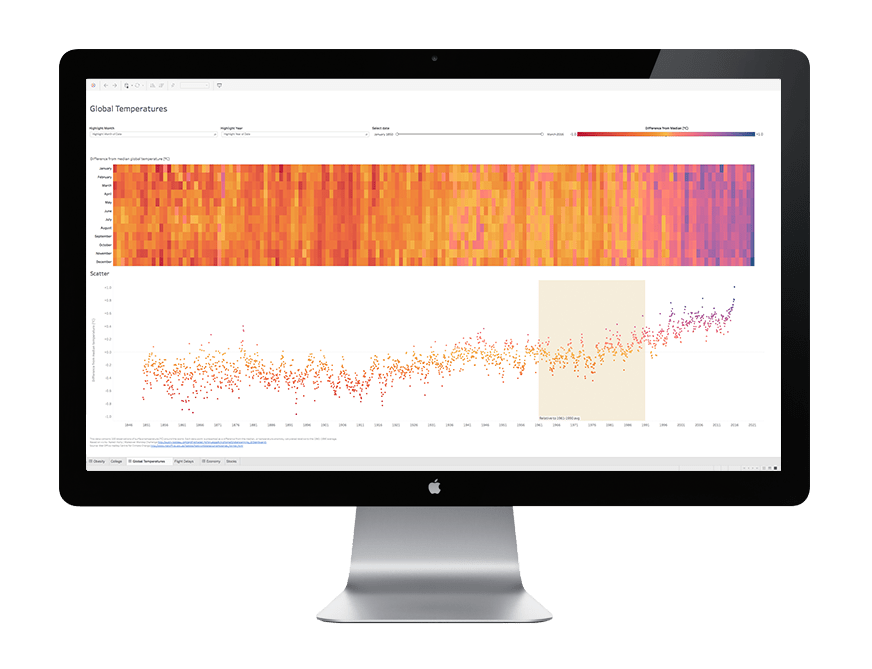Self-Service BI in Retail
Departments that fully collaborate and exchange information, end users who can visualise data themselves and can therefore make better and faster decisions, everyone who has full confidence in the data. An important goal that many organisations have been trying to achieve in recent years, both in retail and in other industries.
Unfortunately, only eight per cent are really successful in achieving this goal and getting as much value out of the data as possible. Isn't it far too often the case that there is too little trust in the data and often a self-created truth? The corona crisis is accelerating the digital transition in many organisations, but how do you make the move to Self-Service BI?
Read how they did this at bol.com and how Tableau together with The Information Lab contributed to this.
Contact us at the bottom of this page to see how we do it with other retailers and if we can help you too.

Major challenges
To be able to work in a data-driven way, it is important to first consider which processes need to be put in place to allow people to work with data themselves. If no processes or agreements are made, this will be at the expense of quality, trust and security. The more self-service you want to work with, the more important data and content governance becomes. These were previously identified as major challenges in the Data Driven Marketing Research 2019.
Although no two organisations are the same, we often recognise three models when it comes to managing the data in an organisation: centralised, delegated or self-service.


